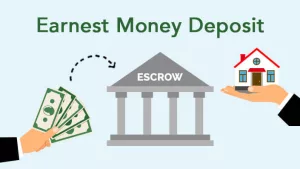Five Steps to Getting Your First Investment Property in 2023
Go Back To Previous Page Buying your first real estate investment property is a significant commitment. You must know a few key things: what to look for, much you can charge for rent, and how much you can spend on expenses. With the proper tools and adequate management, it can be a stepping stone to maximizing wealth.
Buying your first real estate investment property is a significant commitment. You must know a few key things: what to look for, much you can charge for rent, and how much you can spend on expenses. With the proper tools and adequate management, it can be a stepping stone to maximizing wealth.
1. What to Look For in Your Real Estate Investment Property

Investigation and research are crucial parts of the process. A range of factors will influence the amount of rent you can charge. For instance, choosing the right location is essential, as a town or neighborhood should ideally have a thriving economy and plenty of growth opportunities.
Moreover, renters want to feel safe and may not pay much for somewhere with high crime rates or homes in disrepair. Likewise, a property that isn’t in excellent condition or has outdated features may also mean a lower rent price. Similarly, the home type, such as a condo or family house, will contribute to your rental price and what sort of tenants you will get.
The location of your real estate investment property is crucial.
2. Expenses

You need to know the possible ownership costs to maximize your long-term investment. Namely, you will be responsible for various maintenance and repair issues and may need to budget for upgrades. While some additions can be optional, others, such as new carpeting, might be necessary to attract renters.
So, to avoid surprises, try to gauge if your investment will require improvements and what issues are likeliest to happen. Of course, insurance can help with this, yet it is another expense to plan for. Indeed, while you can benefit from homeowners insurance designed for landlords, be aware that premiums are higher.
3. Know What Is Wanted
 In short: A successful investment has to hit the ground running, so knowing what renters want can be advantageous. With that in mind, do plenty of research to explore what people desire. While that may differ by area or demographic, many renters will look for furnished and well-maintained properties.
In short: A successful investment has to hit the ground running, so knowing what renters want can be advantageous. With that in mind, do plenty of research to explore what people desire. While that may differ by area or demographic, many renters will look for furnished and well-maintained properties.
Still, other features could make your rental stand out from the pack, like having a pet-friendly policy or a home full of available smart tech. Choosing your approach will be a process, but it is worth the hard work and expense.
4. Plan Out Profits

Knowing what might determine the monthly rent is only one part of your planning. After all, not every state has favorable taxes, and you may have to factor that into where you invest since the cost might outweigh the benefits. Still, there are numerous tax deductions and exemptions you might be eligible for.
You likely won’t have to pay self-employment taxes as a landlord, and the investment may have day-to-day expenses. For example, specific home improvements can be tax-deductible, as can utilities, if you decide to include them in any rental agreement. So, do your tax research and be sure that where you choose will not impact your profits.
5. Consider the Long Term

Consider using a certified financial advisor to discuss your long-term goals as a first step. While they are entirely optional, an advisor can explore how you might develop your initial investment. They could also guide how to use it to expand your portfolio over time. Yet, whatever you do, you must be confident that somebody can efficiently manage your first purchase.
In particular, you may want to investigate the benefits of a property manager to tackle the responsibility for running your investment. However, before you commit to anyone, ensure they share your drive and want to build a stable business relationship with you.
An investment property can bring with it plenty of rewards. That said, it’s not merely a matter of making a purchase and seeing the profits flow. It’s a process that will take planning and research, but your efforts can turn your investment into a thriving source of income.
6. Ask yourself if you want to be a landlord
Managing an investment property independently can consume more time and money than expected. The best real estate investors opt for a professional property manager to handle the daily tasks of each property.
If you’re not interested in being a landlord, you have other options for investing in real estate, such as joint ventures, crowdfunding, or REITs.
7. Build up your cash reserves
Besides the down payment and closing costs, it’s essential to have cash reserves for unforeseen repairs or reduced rental income in case of a higher-than-normal vacancy rate.
One way to increase your reserve account is by depositing a set percentage of your monthly cash flow into a designated capital reserve account regularly.
Final Tips to Help You Buy Your First Investment Property
Owning investment property offers numerous benefits. Tenant rental income can cover your mortgage and operating expenses, leaving you with extra cash flow as profit. Additionally, property depreciation can be utilized to lower your taxable net income, potentially even to zero, despite earning a cash profit.
Investing in real estate can be a beneficial way to diversify your portfolio, accumulate wealth over time, and save for retirement using a self-directed IRA. However, it is important to consider the potential drawbacks that come with these advantages.


